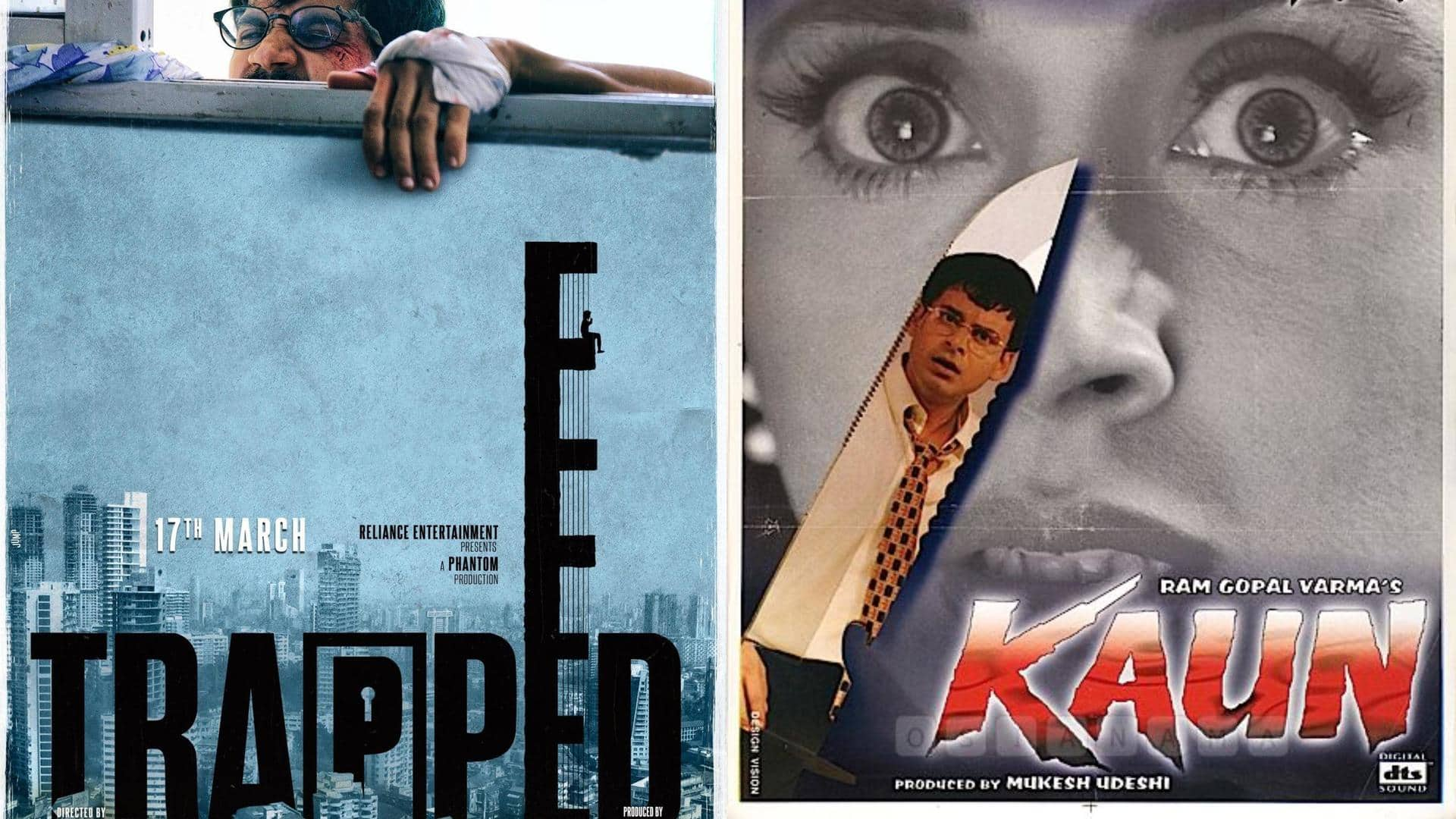
#NewsBytesExplainer: Exploring chamber films—meaning, characteristics, well-known examples
What's the story
Are you fond of watching movies that unfold in just one location? Usage of this device heightens the suspense factor, develops a sense of urgency, fear, and paranoia, and the location(s) doubles up as a character, too. Such movies are called chamber films and usually, thriller movies fall into this category. Read more about the term and understand it through some examples.
Definition and meaning
What is the common thread across such films?
Chamber films utilize one location or minimal locations while telling the story and this lends the movie a sense of suffocation, a claustrophobic impact that works hand in glove with the screenplay. Such films usually, but not always, tend to have minimal characters in place, and all this is done to make the drama engaging and engrossing. It's like an invisible clock ticking by.
Inspiration
Dig into the origins of the term and its pioneers
Chamber films are reportedly inspired by plays performed in the early 20th century. Austrian director Max Reinhardt and Swedish poet and playwright August Strindberg are considered its founding fathers. By the 1920 and the 1930s, the idea spread and became popular in cinema as the medium became global. Swedish filmmaker Ingmar Bergman and Danish director Carl Theodor Dreyer are credited with popularizing it.
International examples
Let's take a quick look at some international examples
Some popular international chamber films are Quentin Tarantino's The Hateful Eight, Roman Polanski's Carnage, Paolo Genovese's Perfect Strangers, Cooper Karl's Sightless, Vincenzo Natali's Cube, Danny Boyle's 127 Hours, Damien Power's No Exit, Rob Reiner's Misery, and Tommy Wirkola's The Trip, among several others. All these films unfold in real-time and focus on limited characters. How many have you watched out of these?
Indian examples
Indian examples: 'Trapped,' 'Awe,' and 'Kaun?'
The Indian film industry isn't behind when it comes to chamber films. Some well-known examples are Urmila Matondkar's Kaun? co-starring Sushant Singh and Manoj Bajpayee, Jithin Issac Thomas's Attention Please, Fahadh Faasil-Darshana Rajendran's Irul, Nithya Menon-Kajal Aggarwal's Awe, Rajkummar Rao's Trapped, and Kookie Gulati's Dhokha—Round D Corner, among others. All these films, except Trapped (ZEE5) and Kaun? (YouTube) are available on Netflix.